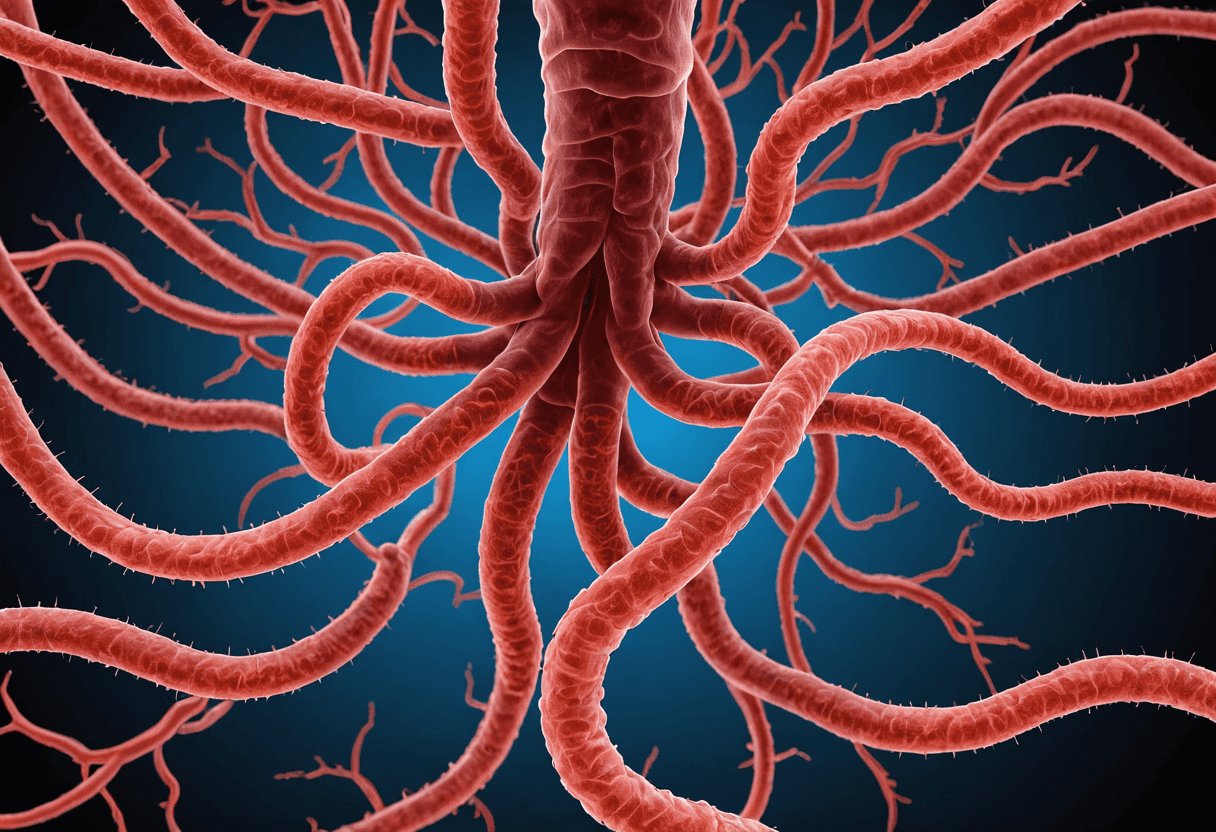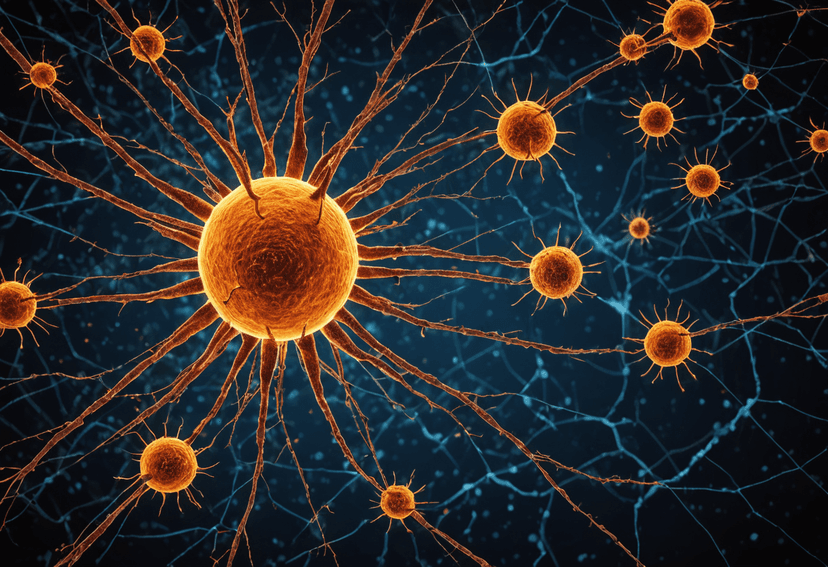
The Uncharted Territory of Small Intestine Cancer
04 Oct, 2024
 Healthtrip
HealthtripImagine having a rare and aggressive type of cancer that affects a part of your body that you rarely think about - the small intestine. It's a vital organ, responsible for most of our nutrient absorption, yet it's often overlooked until something goes terribly wrong. Small intestine cancer, also known as small bowel cancer, is a type of cancer that affects the small intestine, which connects the stomach to the large intestine. It's a rare disease, accounting for only about 1% of all gastrointestinal cancers, but its impact on patients and their families can be devastating.
What is Small Intestine Cancer?
Small intestine cancer occurs when abnormal cells in the lining of the small intestine grow and multiply uncontrollably, forming a tumor. These tumors can be either benign (non-cancerous) or malignant (cancerous). Malignant tumors can invade nearby tissues and organs, and even spread to other parts of the body through the bloodstream or lymphatic system. The most common type of small intestine cancer is adenocarcinoma, which arises from the glandular cells in the lining of the small intestine.
Most popular procedures in India
Risk Factors and Causes
While the exact causes of small intestine cancer are still not fully understood, certain factors can increase a person's risk of developing the disease. These include a family history of small intestine cancer, Crohn's disease, celiac disease, and certain inherited syndromes such as familial adenomatous polyposis (FAP). Additionally, people who have had radiation therapy to the abdomen or have been exposed to certain chemicals, such as pesticides, may also be at a higher risk.
Wellness Treatments
Give yourself the time to relax
Lowest Prices Guaranteed!

Lowest Prices Guaranteed!
Symptoms and Diagnosis
The symptoms of small intestine cancer can be vague and nonspecific, making it challenging to diagnose. They may include abdominal pain, weight loss, diarrhea, vomiting, and fatigue. In some cases, patients may experience a bowel obstruction, which can lead to severe abdominal pain, nausea, and vomiting. Because the symptoms are similar to those of other gastrointestinal conditions, diagnosis is often delayed, and the cancer may have progressed by the time it's detected.
Diagnostic Tests
To diagnose small intestine cancer, doctors may use a combination of imaging tests, including computed tomography (CT) scans, magnetic resonance imaging (MRI) scans, and positron emission tomography (PET) scans. They may also perform an endoscopy, where a flexible tube with a camera is inserted through the mouth or rectum to visualize the inside of the small intestine. A biopsy, where a sample of tissue is taken from the tumor, is usually necessary to confirm the diagnosis.
Treatment Options
Treatment for small intestine cancer usually involves a combination of surgery, chemotherapy, and radiation therapy. The goal of surgery is to remove the tumor and any affected surrounding tissue. Chemotherapy may be used to shrink the tumor before surgery or to kill any remaining cancer cells after surgery. Radiation therapy may be used to relieve symptoms and improve quality of life.
Surgical Options
Surgery is the primary treatment for small intestine cancer, and the type of surgery used depends on the location and size of the tumor. In some cases, a laparoscopic surgery may be performed, where several small incisions are made in the abdomen, and a camera and specialized instruments are used to remove the tumor. In other cases, an open surgery may be necessary, where a larger incision is made in the abdomen.
Coping with Small Intestine Cancer
Receiving a diagnosis of small intestine cancer can be overwhelming and emotional. Patients and their families may experience feelings of shock, denial, anger, and fear. It's essential to have a strong support system, including family, friends, and a healthcare team, to help navigate the treatment journey. Patients should also consider joining a support group, where they can connect with others who are going through a similar experience.
Despite the challenges, there is hope for patients with small intestine cancer. With advances in medical technology and treatment options, survival rates are improving, and patients are living longer, healthier lives. By raising awareness about this rare disease, we can work together to improve diagnosis, treatment, and outcomes for patients with small intestine cancer.
Related Blogs

The Uncharted Territory of T-Cell Lymphoma
T-cell lymphoma is a type of cancer that affects the

The Uncharted Territory of Vulvar Cancer
Vulvar cancer is a type of cancer that affects the

The Uncharted Territory of Thymoma
Thymoma is a rare type of cancer that affects the

The Forgotten Cancer: A Look into Appendix Cancer
Appendix cancer is a rare type of cancer that affects

Cancer's Dark Horse: Understanding Adenoid Cystic Carcinoma
Adenoid cystic carcinoma is a rare type of cancer that

Liposarcoma: The Fat Cancer
Liposarcoma is a type of cancer that affects the fat










